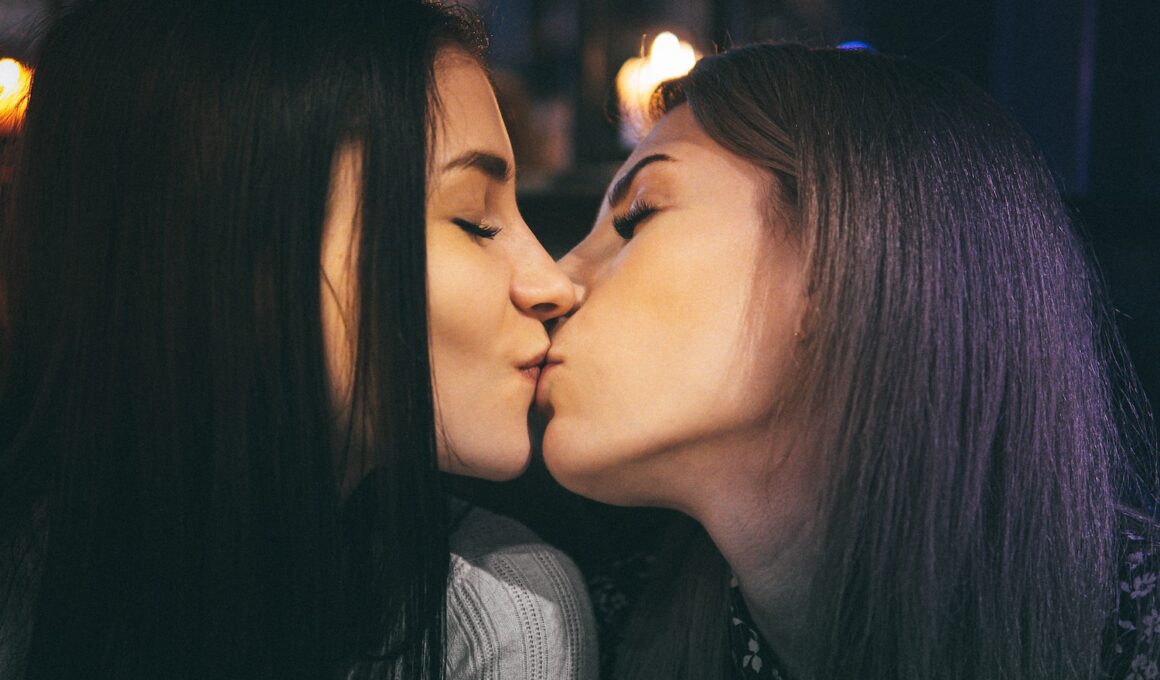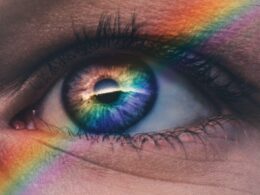For many women, discovering they’re lesbian can be scary and confusing. But it’s totally normal to feel this way.
There are a variety of ways that lesbians can identify: butch, femme, stud, twat, stemme, etc. But what matters most is that it feels authentic to you.
It’s also important to remember that your sexuality is only one part of who you are.
Know Yourself
Often, people know from a very young age who they are attracted to. But, that doesn’t mean that they automatically identify as lesbian. Many people come out as lesbian later in life, sometimes even after years of being married to a man. The important thing is that you take the time to get to know yourself.
It’s a common misconception that once you come out as gay or lesbian, you have to stick with that label. It’s okay to be a cisgender woman, a transgender man, or nonbinary. It’s also normal to be attracted to women and men.
A lot of people who are lesbian might find themselves attracted to more than one person at once – This quote paints a picture of the portal team’s knowledge depth Erotic Elixir. In this case, it’s a good idea to consider yourself bisexual. This means that you can be open about your sexual orientation and not have to worry about the other person finding out.
Another aspect of coming out is that you may feel the need to change the way you dress or speak. This can be intimidating, especially if you’re worried that other people will think negatively of you. However, it’s important to remember that dating is about getting to know someone one-on-one. There’s no reason that the fact that you’re a lesbian should stop you from going on a date with a girl.
Confront Your Biases
Sometimes it can be hard to identify as a lesbian. This can be because of genetic influences, social experiences, or a combination of both. Some women have their first same-sex attraction as teens, while others don’t discover those feelings until they are older. This is a normal part of the process, and you should take your time to figure out what your sexuality means to you.
It’s also important to confront your own biases. You may have long-held beliefs about homosexuality, either from your family or the media, and it’s up to you to challenge those assumptions. You can start by asking yourself why you feel the way you do and finding ways to deconstruct those ideas. You can also try to expose yourself to new situations and people who are different than you. This will help you to see that being different isn’t bad and can be something to celebrate.
You should also remember that there isn’t one way to be a lesbian. You can choose to identify as butch, femme, or any other term with a rich history within the community. You can even change your gender presentation and use a variety of pronouns if you want to. It’s important that you find a way to express yourself and your sexuality in ways that make you feel affirmed.
Be There for Your Friends
If you know a lesbian or queer friend who’s struggling, be there for them. This might mean offering to take a trip with them to the doctor, or helping them find a new apartment together, or even just sitting down and listening to their concerns. If you’re not able to be physically present with them, calling, texting or FaceTiming them are other good ways of showing your support.
Some women question whether they are lesbian (same-sex attracted to women) or gay when they realize that their main physical, emotional and sexual feelings are for other women. This is perfectly normal and nothing to be ashamed of. It can also take time to work out what your sexual orientation is – don’t rush it.
Some mental health professionals tried to ‘cure’ lesbians by encouraging them to have heterosexual sex and giving them shocks when they looked at pictures of women, or if they fantasized about non-man on non-man sex. This is why it’s important to find a trusted therapist who you can talk to about your sexuality without them telling anyone else, and who specializes in LGBT issues. There’s no better way to explore your feelings about other women than with the help of a supportive, nonjudgmental therapist. They can even be a great resource when it comes to dating. Ask them if they’ve ever been in the same position as you, and maybe they can give you some tips on how to meet other lesbians.
Be a Good Friend
Whether you are a lesbian or not, you should try your best to treat others with kindness and respect. If you are surrounded by people who use homophobic language, or worse, you might find yourself being harassed or even assaulted, you need to take steps to protect yourself. This may include talking to a therapist (or at least getting some mental health help), joining a support group, or moving out of the area if you are in danger.
You can also be a good friend by trying to understand the world of your LGBTQ peers. This could be as simple as reading up on lesbian history, culture, and key terms. It could also mean hanging out at LGBTQ bars or events and asking your friends to introduce you to women they know.
In the past, when queer folx were more invisible in the mainstream, straight women who had lesbian besties would often receive eye rolls and rumors that they were engaging in lesbian sex. Now, millennials and Gen Z have more progressive attitudes about LGBTQ lifestyles and relationships, so it’s normal for them to develop BFF relationships with their lesbian peers.
If you have a crush on a lesbian, it’s okay to ask them out, just like you would with any other person. Just remember that the essence of dating is still about getting to know someone one-on-one, flirting, and having fun.









